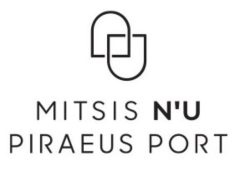 Next time you find yourself rating a recent hotel stay on TripAdvisor or one of the growing number of hotel sites that support user reviews, consider this: A favorable opinion could translate into a higher rate for your next stay.The connection between user reviews and hotel rates is the subject of a newly released study by Cornell University’s School of Hotel Administration. (There’s no charge to register on the School’s website, which will allow you to view the full report.) The findings confirm the common sense notion that reputation affects demand, and demand in turn affects price.
Next time you find yourself rating a recent hotel stay on TripAdvisor or one of the growing number of hotel sites that support user reviews, consider this: A favorable opinion could translate into a higher rate for your next stay.The connection between user reviews and hotel rates is the subject of a newly released study by Cornell University’s School of Hotel Administration. (There’s no charge to register on the School’s website, which will allow you to view the full report.) The findings confirm the common sense notion that reputation affects demand, and demand in turn affects price.
According to the study:
If a hotel increases its review scores by 1 point on a 5-point scale (e.g., from 3.3 to 4.3), the hotel can increase its price by 11.2 percent and still maintain the same occupancy or market share.
And:
A 1-percent increase in a hotel’s online reputation score leads up to a 0.89-percent increase in price as measured by the hotel’s average daily rate (ADR). Similarly this 1-percent increase in reputation also leads to an occupancy increase of up to 0.54 percent. Finally, this 1-percent reputation improvement leads up to a 1.42-percent increase in revenue per available room (RevPAR).
The study cites two developments underlying the new reality.
First, more and more travelers are writing and reading more and more hotel reviews.
And related to that, beginning in 2010, customer reviews became the single most important factor in choosing a hotel.
What it all boils down to is a direct and increasingly strong relationship between what people are saying about a hotel and what you can expect to pay to stay there.
Saying What You Mean Vs. Getting What You Want
User reviews have already come under scrutiny for allowing unscrupulous reviewers to game the system. The temptation for a hotel employee to post glowing reviews of his property, or to pan a competitor’s, is obvious and understandable.
We now have another perverse incentive to factor into the mix: Dissing a hotel you actually love could ultimately net you a better rate. It pays, in other words, to be dishonest.
Reader Reality Check
Knowing what you now know, would you be more inclined to under-praise a hotel, in hopes of keeping its rates from rising?
Source: http://www.frequentflier.com











